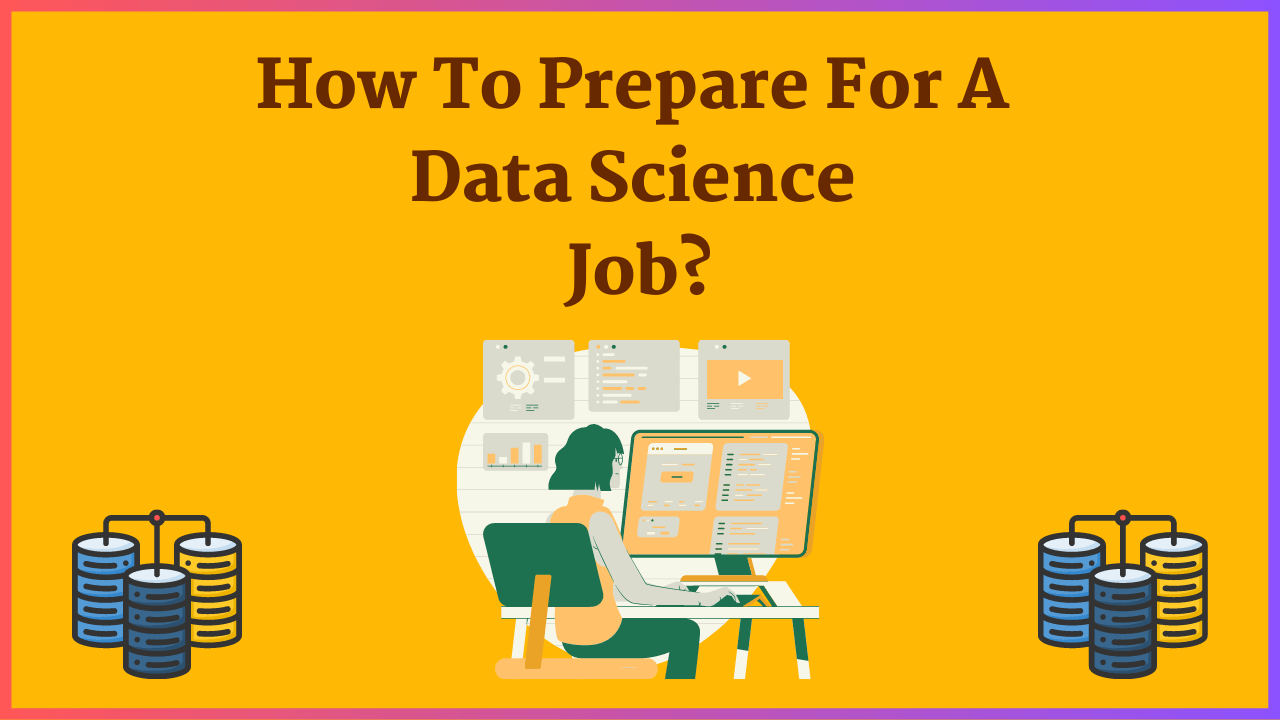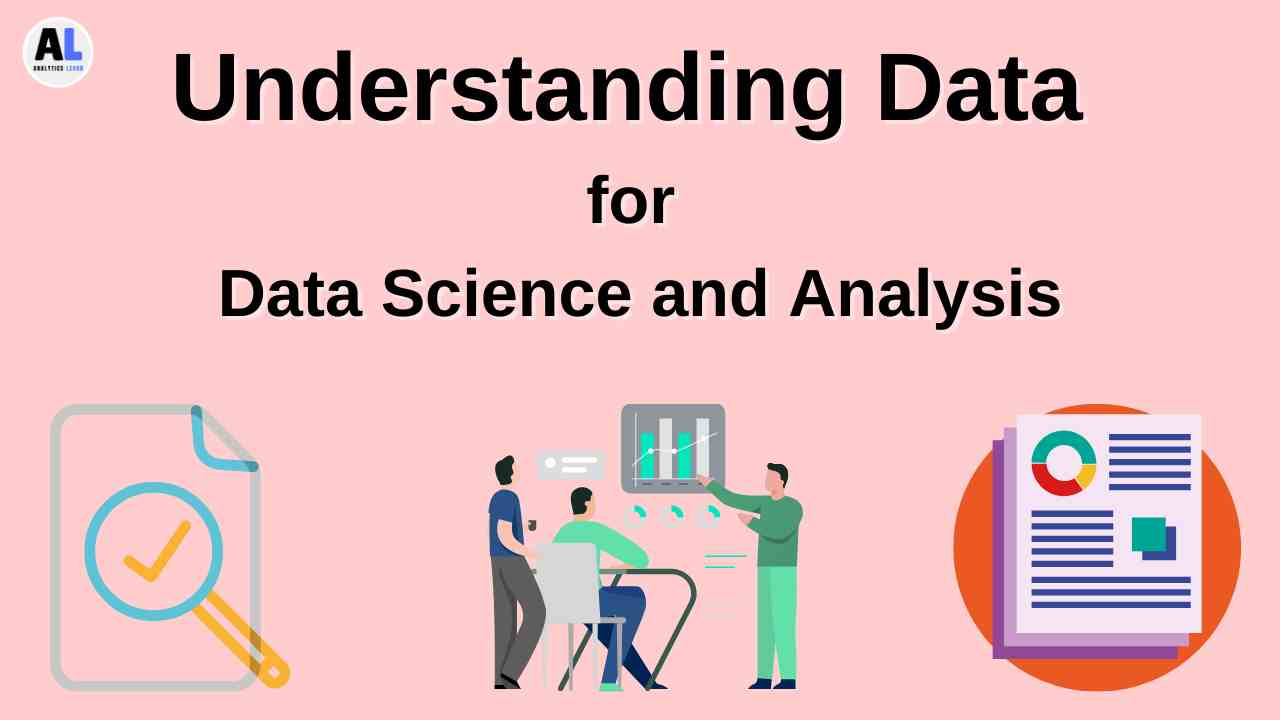In this article, we will learn, about the steps and process of How to prepare for a Data Science Job? in detail.
Data science encompasses a range of skills and disciplines, including mathematics, statistics, computer science, domain knowledge, and problem-solving.
It involves collecting, cleaning, and organizing data, exploring and visualizing patterns and trends, building predictive models, and making data-driven decisions.
What is Data Science?
Data science is a multidisciplinary field that combines scientific methods, algorithms, and systems to extract knowledge and insights from structured and unstructured data.
It involves analyzing, interpreting, and extracting valuable information from large and complex datasets using various techniques, tools, and algorithms.
Data science finds applications in various industries and domains, including finance, healthcare, marketing, social media, e-commerce, manufacturing, and more.
It helps organizations gain insights, make data-driven decisions, optimize processes, improve customer experiences, detect fraud, predict outcomes, and innovate new products and services.
Overall, data science is a powerful discipline that leverages data and advanced analytics to uncover patterns, extract valuable knowledge, and drive informed decision-making in today’s data-driven world.
Related Article: How to Start a Career in Data Science?
Key Components of Data Science:
1. Data Collection:
Gathering relevant data from various sources, including databases, APIs, websites, sensors, and more.
2. Data Cleaning and Preparation:
Cleaning, filtering, and transforming data to ensure its quality, consistency, and readiness for analysis.
3. Exploratory Data Analysis (EDA):
Conducting preliminary analysis to understand the structure, patterns, and relationships within the data through summary statistics, data visualization, and statistical techniques.
4. Data Visualization:
Creating meaningful visual representations of data to communicate insights, patterns, and trends effectively.
5. Machine Learning:
Applying algorithms and statistical models to develop predictive and descriptive models that can automatically earn and make predictions or classifications from data.
Related Article: What is Statistical Modeling? – Use, Types, Applications
6. Feature Engineering:
Transforming raw data into meaningful features that can enhance the performance of machine learning models.
7. Model Evaluation and Selection:
Assessing the performance of different models and selecting the most appropriate one based on specific criteria and business requirements.
8. Deployment and Integration:
Implementing data science models into production systems or integrating them into existing workflows for practical use and impact.
9. Continuous Learning and Improvement:
Monitoring and evaluating models over time, retraining them as new data becomes available, and refining the models to improve their accuracy and effectiveness.
Steps to Prepare for a Data Science Job
Preparing for a data science job requires a combination of technical skills, practical experience, and a strong understanding of the field.
Here are some steps you can take to prepare for a data science job:
Step 1: Build a Strong Foundation
- Develop a solid understanding of mathematics and statistics, including topics like linear algebra, calculus, probability, and statistical inference.
- Familiarize yourself with key concepts such as hypothesis testing, regression, and probability distributions.
Step 2: Learn Programming Languages
- Focus on learning Python and/or R, as they are widely used in data science.
- Become proficient in programming fundamentals, data structures, and control flow.
- Familiarize yourself with libraries and packages commonly used in data science, such as NumPy, Pandas, scikit-learn, and TensorFlow.
Step 3: Gain Knowledge of Data Science Techniques
- Study and practice various machine learning algorithms, including regression, classification, clustering, and dimensionality reduction.
- Learn about exploratory data analysis (EDA) techniques, data visualization, and feature engineering.
- Understand how to preprocess and clean data, handle missing values, and deal with imbalanced datasets.
Step 4: Get Hands-On Experience
- Work on real-world projects using publicly available datasets or data from your field of interest.
- Apply the techniques and algorithms you’ve learned to solve problems and extract insights from the data.
- Document your work, including your approach, methodology, and results, to build a portfolio that demonstrates your skills.
Step 5: Participate in Kaggle Competitions
- Kaggle hosts data science competitions where you can compete with others to solve challenging problems.
- Participating in Kaggle competitions allows you to apply your skills, learn from experienced practitioners, and benchmark your performance.
Step 6: Pursue Relevant Education and Courses
- Consider pursuing a formal degree in data science, statistics, or a related field.
- Take advantage of online platforms like Coursera, edX, and DataCamp, which offer a variety of data science courses and specializations.
- Choose courses that cover topics such as machine learning, statistical analysis, data visualization, and big data technologies.
Step 7: Stay Updated and Engage with the Community
- Keep up with the latest trends, tools, and research in data science by reading blogs, research papers, and attending webinars or conferences.
- Engage with the data science community through forums, social media, and local meetups to learn from experts, ask questions, and share knowledge.
Step 8: Enhance Your Communication and Soft Skills
- Develop strong written and verbal communication skills, as data scientists often need to convey complex ideas and present their findings.
- Work on your teamwork and collaboration skills, as data science projects often involve cross-functional teams.
Step 9: Network and Seek Mentorship
- Connect with professionals in the data science field through networking events, online communities, and social media platforms.
- Seek mentorship from experienced data scientists who can provide guidance, advice, and insights into the industry.
Step 10: Apply for Internships and Entry-Level Positions
- Start applying for internships or entry-level positions in data science to gain practical experience.
- Tailor your resume and cover letter to highlight relevant skills, projects, and experiences.
- Prepare for interviews by practicing technical questions, discussing your projects, and demonstrating your problem-solving abilities.
Conclusion
In conclusion, data science is a dynamic and interdisciplinary field that combines mathematics, statistics, computer science, and domain expertise to extract insights and knowledge from data.
It involves collecting, cleaning, and analyzing large and complex datasets to uncover patterns, make predictions, and drive data-driven decision-making.
To prepare for a data science job, it is important to develop a strong foundation in mathematics and statistics, learn programming languages like Python and R, gain knowledge of machine learning algorithms and data analysis techniques, and build a strong portfolio of projects.
Continuous learning, staying updated with the latest trends and tools, and networking with professionals in the field are also crucial steps to prepare for a successful career in data science.
Data science has widespread applications across industries and plays a vital role in driving innovation, improving processes, and making informed decisions based on data-driven insights.
As the field continues to evolve, data scientists have the opportunity to contribute to solving complex problems and shaping the future with the power of data.
Remember, preparing for a data science job is an ongoing process, Continuously learn and update your skills, stay curious, and adapt to new technologies and methodologies.
With dedication, persistence, and a strong foundation, you can position yourself for a successful career in data science.
Related Article: How to Become A Data Scientist in India?

Meet Nitin, a seasoned professional in the field of data engineering. With a Post Graduation in Data Science and Analytics, Nitin is a key contributor to the healthcare sector, specializing in data analysis, machine learning, AI, blockchain, and various data-related tools and technologies. As the Co-founder and editor of analyticslearn.com, Nitin brings a wealth of knowledge and experience to the realm of analytics. Join us in exploring the exciting intersection of healthcare and data science with Nitin as your guide.










